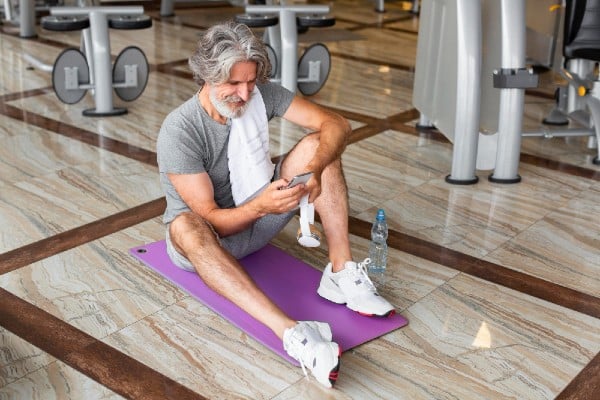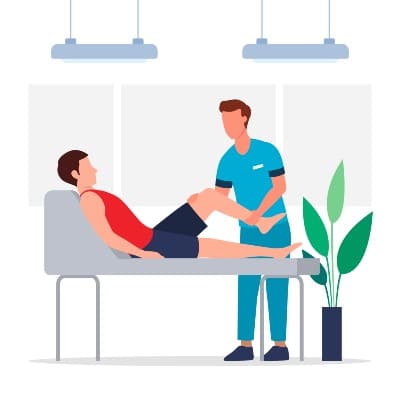Arthritis occurs in our joints, characterized by inflammation of the joints or other parts of the body. Inflammation generally causes pain, swelling, and stiffness and can lead to other more severe health problems.
Arthritis affects about six million people in Canada. Unfortunately, with no cure to date, it is more about finding ways to effectively manage the pain and find ways to continue living a quality lifestyle.
One in two seniors has arthritis. Many people are of the impression that arthritis only affects the elderly; however, the ailment can develop at any age. People who work in jobs that require repetitive physical tasks are more prone to the disease; this includes office jobs where most of the day is spent on the computer. Even children can develop arthritis, as it currently affects just under 25,000 youngsters in Canada.
Women are more susceptible to arthritis, and it is estimated that 60% of females over 65 will have arthritis in the next 20 years.
Tips for Living with Arthritis
Arthritis can be a debilitating disease that can have a detrimental impact on independent living. The joint pain and stiffness associated with the condition can make it difficult and painful to perform regular daily tasks and activities. Several lifestyle practices can help manage and alleviate the unpleasant symptoms of the disease.
Some suggestions for managing arthritis may include:
- Staying active
- Strengthening exercises & stretching
- Good nutrition
- Cut out bad habits
- Avoiding stress
- Use of adaptive tools & optimize home safety
- Alternative Therapies
- Home care assistance
Staying Active
One area of confusion surrounding arthritis is whether physical activity eases or exacerbates the symptoms of arthritis. Strenuous, high-impact activity can undoubtedly hurt the condition and increase pain and swelling. However, living a sedentary lifestyle is much worse for the disease.

Cut Out Bad Habits
Poor nutrition is one bad habit to avoid, and many other negative lifestyle practices can also be harmful. Some bad habits to cut out might include excess alcohol consumption, smoking, overeating, and even a chronic bad attitude which can have harmful physical effects.
Avoiding Stress
It is not always possible to avoid stress. Mental stress can have profound impacts on overall health, and physical stressors should also be avoided with arthritis. Any movements or positions that pIt is essential to keep stiff joints moving as much as possible to prevent them from tightening up even more. Exercise routines should cater to the specific type of arthritis, but low-impact activities like walking, swimming, yoga, and tai chi are often safe.
Strengthening Exercises & Stretching
The stronger and more flexible the muscles and ligaments around the joints are, the less pain and stiffness your body will experience. Stretching is absolutely crucial and should be done for at least 30 minutes a day to increase the flexibility and mobility of the joints. It is a good idea to consult a physician or physiotherapist to design an ideal exercise regimen for your specific situation. Lack of exercise is certainly not helpful for arthritis, but overdoing it can be just as harmful. It is essential to find the right balance for optimal results.
Good Nutrition
As with just about every health condition, good nutrition is critical to managing the effects of arthritis. Getting the daily recommended vitamins, minerals, and protein helps build up the body’s immunity for combating inflammation. Focus on a diet of fruit, vegetables, whole grains, nuts, legumes, healthy carbs, and quality proteins to complement your exercise regimen. Avoid processed foods high in fat and sugar at all costs.

Adaptive Tools & Home Adjustment
Assistive devices like canes and crutches may be useful for people that experience pain while walking. Also, automatic devices like electric toothbrushes, can openers, scrubbers, and grabbers can help reduce painful movements and unnecessary bending. Modifications can also be made around the home to improve home safety and facilitate strenuous tasks.
Alternative Therapies for Arthritis
Massage therapy is a great way to help relieve pain and increase circulation and joint mobility. You feel better and sleep better as well.
Acupuncture has traditionally been used to restore internal balance and is also known to help with joint pain and inflammation.
Promyse Home Care Assistance
Home Care from a professional home care agency, such as Promyse Home Care, can be extremely helpful in managing pain and symptoms caused by arthritis. Our Caregivers can assist with a range of services, including housekeeping, personal hygiene, exercise routines, and medication management, to help manage pain and lead a more comfortable and enjoyable life.



